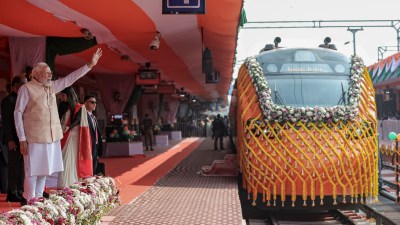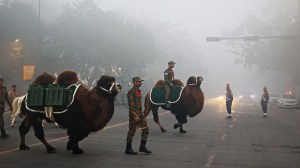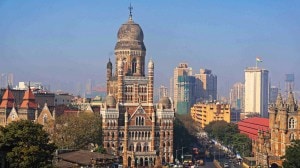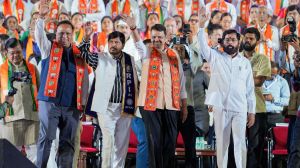Pervez for Pervez
In a country ruled mostly by its army, a Pakistani army general will once again see himself 8220;elected8221; as the president of the coun...

In a country ruled mostly by its army, a Pakistani army general will once again see himself 8220;elected8221; as the president of the country for the next five years. It is only in Pakistan with its unique concept of democracy that the elites can keep shouting for self-determination for Indians in J038;K living under multi-party elected governments for more than five decades, while its army commander-in-chief, the elitist of the elites, perpetuates army rule on the basis of a referendum that has been severely criticised by the two leading political parties and the radical religious right besides being frowned upon by the international community. Pervez Musharraf8217;s referendum campaign, mostly conducted by the general with hired audiences, has been organised by the state and its machinery which he himself heads. He is making sure that even a pliant parliament elected after October elections where the two main parties have been pushed on the back-foot would not be able to elect its own nominee as the president.
Musharraf8217;s candour and honesty in campaigning in military commando uniform and the declaration that he would continue as the army chief into an undefined tenure may be appreciated in some quarters in the West who have found a new ally in the war against terrorism nurtured as it was by the army generals of Pakistan. But the message for the people of Pakistan is clear: the referendum is to ensure that the army stays in power. That this is being done well before the country would go in for some sort of elections is also a clear indication that any elected government would serve at the pleasure of the army. In the eyes of the army, this was the cardinal sin that Nawaz Sharif had committed in removing the constitutional provision that provided the president with uncontested powers to remove an elected PM which successive presidents did to every single elected prime minister since 1985.
Musharraf had come under severe pressure after September 11 which led to his co-operation with the US-led war against terrorism. The pressure of the Indian political offensive and military mobilisation had led to his January 12 speech. But there has been little progress in implementing his promises. On the other hand, as many as 80 per cent of the 2,000 radical militants arrested earlier have been released. Cross-border terrorism continues unabated with the incidence of violence actually increasing in J038;K. Pakistan may be seen as a 8220;frontline state8221; by Americans, this time against terrorism and the regime that it had created and nurtured, but the ease with which Al-Qaeda fighters have moved around inside Pakistan clearly indicates the reality. In fact, influential quarters in the US believe it is Musharraf now who is managing Washington, rather than the other way round. The clear signal that the US gave to Pakistan soon after September 11 has faded. Washington is now negotiating with Musharraf, not forcing him to act. The prospects of a co-operative Pakistan appear to be receding.
- 01
- 02
- 03
- 04
- 05































